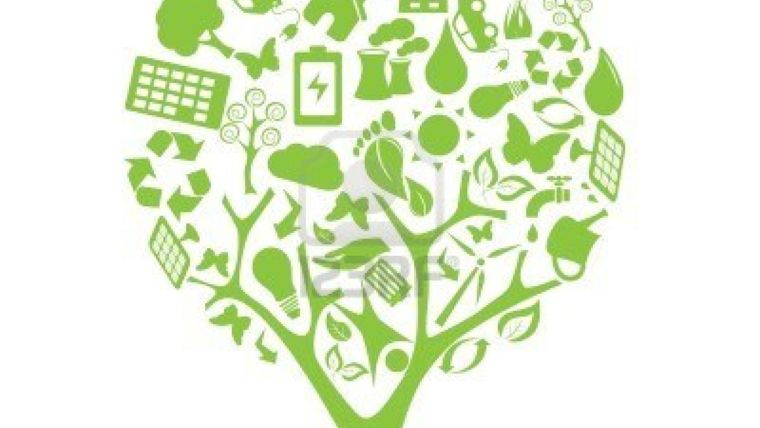It is a shame, but not surprising, that things have to be this bad to wake up people to the fact that “we ARE there” already. In case you have any doubts, the following headlines from this week should provide a sobering jolt to your consciousness.
We all know people who either don’t get that there is a problem or don’t comprehend how horrible things can get much less how bad they already are. We simply must spread the word and demand drastic action now to mitigate (and adopt) what could and will be the worst consequences that will devastate our descendants’ world. If you do nothing else today, read the headlines below all of which are just from this past week.
The first group are of what is happening climate/weather wise. The extreme is shocking. It is horribly distressing to be reading about all this already, much less living in these conditions, and to think of what this means for 5 or 10 years from now much less 20 or 30. This makes the case for drastic measures now.
Let me start you off today with this thought:
We are flying electric helicopters on Mars, but we can’t use the dryer in Texas. This is because scientists are in charge of Mars and Republicans are in charge of Texas.
Ground Temperatures Hit 118 Degrees in the Arctic Circle
https://gizmodo.com/ground-temperatures-hit-118-degrees-in-the-arctic-circl-1847144505?mc_cid=40aabfb9b0&mc_eid=8f4760cc57
The ongoing climate crisis is not going to spare Siberia.
Isaac Schultz
June 24, 2021
Newly published satellite imagery shows the ground temperature in at least one location in Siberia topped 118 degrees Fahrenheit (48 degrees Celsius) going into the year’s longest day…The 118-degree-Fahrenheit temperature was measured on the ground in Verkhojansk, in Yakutia, Eastern Siberia, by the European Space Agency’s Copernicus Sentinel satellites. Other ground temperatures in the region included 109 degrees Fahrenheit (43 degrees Celsius) in Govorovo and 98.6 degrees Fahrenheit (37 degrees Celsius) in Saskylah, which had its highest temperatures since 1936. It’s important to note that the temperatures being discussed here are land surface temperatures, not air temperatures.
Pacific Northwest Soon to be Ground Zero for Record-Shattering Heat
https://www.axios.com/pacific-northwest-heat-wave-all-time-records-17b55cac-7049-4583-86f0-4296093d5691.html?mc_cid=40aabfb9b0&mc_eid=8f4760cc57
Andrew Freedman
Jun 24, 2021
The heat wave will shatter monthly and all-time temperature records in the Pacific Northwest. Some of the records could break the old milestones by several degrees. A highly unusual weather pattern is moving into place over the Pacific Northwest, with a record-strong high-pressure area — colloquially known as a “heat dome” — parked over the region. Such a heat dome, if it reaches the intensity computer models are projecting, would break records for this far north at any time of year.
‘Hell, Plain Hell’ as Moscow Endures Record June Heat Wave
Associated Press Article in E&E News
Friday, June 25, 2021
Residents of Russia’s capital are wilting under hot temperatures that on Wednesday hit an all-time high for June since records started being kept…The midafternoon temperature of 94.6 degrees Fahrenheit edged above the 94.46 degrees recorded in 1901…He said the heat is due to a stationary anticyclone hovering over the European section of Russia. Moscow temperatures in June average about 72 degrees, and many residents weren’t adapting well. “This is hell, plain hell,”
Spotted by Satellites: A Huge Lake Drains and Disappears
Chelsea Harvey, E&E Reporter
June 25, 2021
Satellite images show that within a matter of days — sometime between June 9 and June 11 — the entire lake vanished from the surface of the ice shelf. Researchers are concerned that continued warming around Antarctica could increase the amount of meltwater pooling on the surface of the ice. They’re also concerned it could weaken Antarctic ice shelves at the same time. In parts of West Antarctica, that’s already happening — warm ocean water is melting seaside glaciers from the bottom up, thinning and weakening their ice shelves. It’s a big concern for the future of Antarctica. Ice shelves are important stabilizing forces on the ice sheet. They help to hold back the vast flow of ice behind them, similar to a cork in a bottle. When an ice shelf breaks or collapses, it can unleash a rapid stream of ice into the ocean, raising global sea levels in the process.
And when the weather gets outrageously hot and/or dry how does that affect us?
Bloomberg News
June 23.2021
California’s drought is so bad that almond farmers are ripping out trees, dairy farmers are sending cows to slaughter, and fields are sitting bare because it’s too costly to irrigate them. Meanwhile, farmhands are working in life-threatening conditions as the brutal temperatures increase the risk of heat stroke and dehydration. Of course, this isn’t just a California problem. The state’s dramatic situation is a stark reminder that climate change is here and it’s wreaking havoc on food production across the world.
Scorching Hot in Phoenix: What It’s Like to Work in 115 Degrees
https://www.nytimes.com/2021/06/20/us/100-degree-weather.html?mc_cid=6ceccb6f5a&mc_eid=8f4760cc57
By Jack Healy
June 20,2021
A punishing spring of drought, wildfires and record-shattering heat is amplifying questions about the habitability of the Southwest in a rapidly warming climate. But it has done little to slow the rapid growth of cities like Phoenix…Being homeless in an era of mega-heat waves is particularly deadly, as homeless people represented half of last year’s record 323 heat-related deaths across the Phoenix area..Heat is already suspected in 20 deaths this year in Maricopa County, which includes Phoenix, with the deadliest months to come…As the temperature spiked to a record 118 degrees last Thursday and climbed throughout the week, the people sweating, working and struggling through dawn-to-dark heat said they were longing for some relief from all of it…As heat waves get fiercer and heat-trapping cities push ever outward, desert nights do not cool down like they once did. And air conditioning bills are pricier than ever.
Tags: Antarctica, Battery, cheaper power, china, clean energy, climate change, climate research, CO2, companies, congress, economy, emissions, energy, EV's, fossil fuels, gas, green energy, oil, tipping point, utilities



